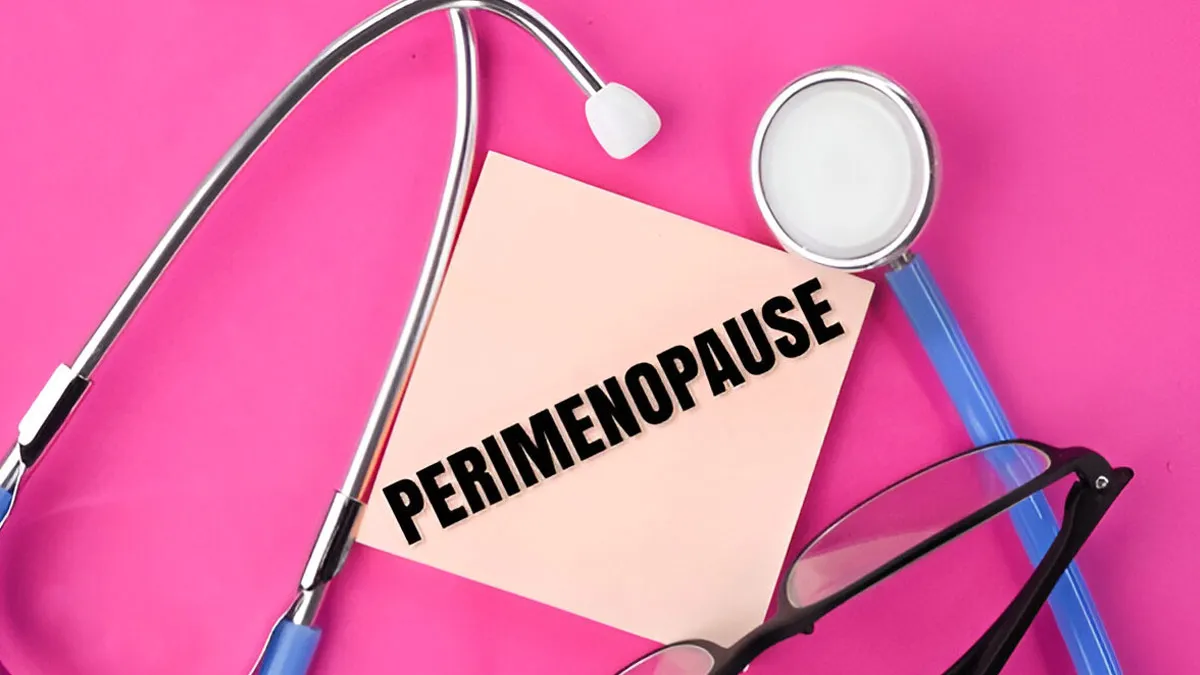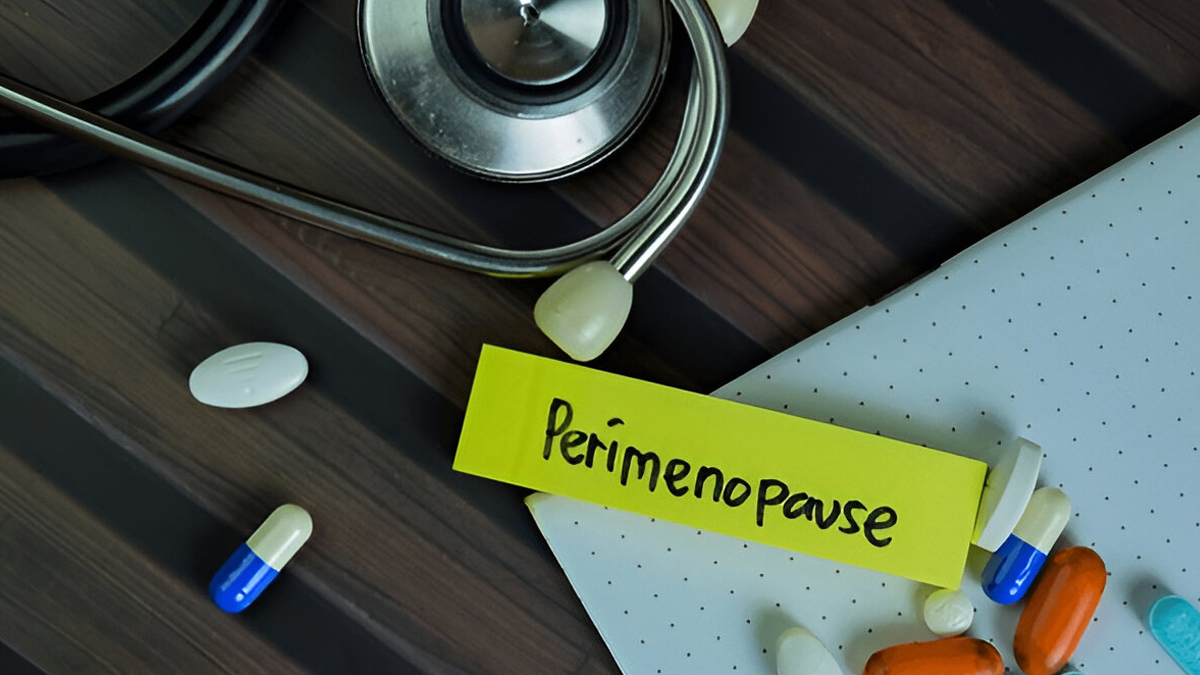
Many women believe that menopause occurs 'later,' in their 50s or late 40s. However, during the last decade, an increasing number of women in their early to mid-30s have noticed unexplained alterations in their bodies. Irregular periods, poor sleep, mood swings, mental fog, and unexpected weight gain; these symptoms that frequently confound them, especially when blood tests show 'normal.'
Table of Content:-
They are generally going through perimenopause, which is the transition period before menopause. It begins earlier for many women today than it did in prior generations. We spoke to Dr Sowmya KN, Consultant - Obstetrician and Gynaecologist, Gleneagles BGS Hospital, Kengeri, Bengaluru, who explained the reasons for early perimenopause.
What Is Perimenopause?

Perimenopause occurs in the years preceding menopause, when the ovaries progressively begin to produce less oestrogen. This shift can take anywhere from 4 to 10 years, and hormonal changes can be unpredictable.
"While menopause is technically defined as 12 months without a period (usually occurring between the ages of 45 and 55), perimenopause can begin in the early 30s, particularly in women with certain risk factors. Notably, this is what we're seeing more of in clinical practice," explained Dr Sowmya.
Causes Of Early Menopause
There is no single cause, although multiple elements appear to be contributing to this tendency.
- Chronic stress: Emotional, occupational, and lifestyle stress can disrupt the delicate balance of the Hypothalamic-Pituitary-Ovarian (HPO) axis, leading to early hormonal alterations.
- Environmental toxins: Daily exposure to endocrine disruptors found in plastics, cosmetics, and food packaging affects ovarian function.
- Health Conditions: Women with autoimmune thyroid disorders or other inflammatory diseases may have early perimenopausal symptoms.
- Family history: If your mother experienced early menopause, you might as well. Genetics has a significant impact.
- Lifestyle and metabolic health: Poor sleep, processed foods, and sedentary behaviours all have an impact on hormone levels.
Sometimes there is no evident cause. However, this does not diminish the experience's reality or validity.
Recognising the Symptoms In Your 30s
Perimenopause does not usually present itself with missed periods. In reality, some women continue to have regular cycles despite enduring disruptive symptoms that resemble other illnesses. Here's what to look out for:

- Increased PMS symptoms: This includes mood swings, impatience, and emotional sensitivity that are more severe than usual.
- Changes in cycle length: Periods can arrive earlier, later, heavier, or lighter than before.
- Sleep problems: This includes difficulty getting to sleep and frequent overnight awakenings.
- Hot flashes or night sweats: These are sometimes ignored as 'random heat,' but they are a crucial indicator.
- Fatigue and brain fog: Difficulty concentrating, forgetfulness, or persistent weariness.
- Vaginal dryness or reduced libido
- Weight increase, particularly in the abdomen.
These symptoms might appear and disappear unpredictably, which frequently delays diagnosis.
Emotional and Psychological Impact
"One of the most aggravating elements for women in their 30s is not being believed. Many women are told that they are 'too young' for perimenopause or merely 'stressed.' Others are administered antidepressants or sleep aids without a thorough assessment of their hormonal status," said Dr Sowmya.
This medical gaslighting adds another element of anxiety. The truth is that perimenopause exists, and for others, it begins earlier. Women deserve to be acknowledged, supported, and given practical solutions.
According to a 2016 study, during the transition into menopause, many women experience increased feelings of depression and anxiety, with a noticeable increase as they enter the later stages and have extended periods without menstruation. These prevalent symptoms often exacerbate each other, leading to a situation where women who are depressed also tend to have more severe hot flashes and poorer sleep quality.
What Can Be Done?
The good news is that early perimenopause does not imply silence. Once diagnosed, usually through a combination of symptom tracking, lab tests (checking for oestrogen, FSH, LH, thyroid), and clinical history, there are numerous approaches to treat the changes.
1. Lifestyle Adjustments

- A nutritious diet high in whole foods, fibre, and healthy fats can help maintain hormonal balance. Reducing caffeine, alcohol, and processed sugar consumption may help with symptoms, such as hot flashes and mood swings.
- Regular physical activity, such as walking, yoga, or resistance training, can help regulate insulin, manage weight, and enhance mood.
- Sleep hygiene, mindfulness, and decreasing screen time in the evening all help to stabilise the nervous system, which is intimately linked to hormonal health.
2. Supplementation and Herbal Support
"Certain supplements, such as magnesium, omega-3s, B vitamins, and adaptogens like ashwagandha, may help with hormonal resilience. However, these should be utilised with the supervision of a skilled practitioner," added Dr Sowmya.
3. Hormone Therapy
In rare cases, you may be administered low-dose hormone therapy or birth control pills to reduce mood swings. This must be done individually, depending on symptoms, lab results, and personal and family medical history.
4. Regular Monitoring
Even if you don't require drugs right now, being in touch with a gynaecologist or women's health professional can help you navigate the next years with confidence.
A Change in How We Talk About Women's Hormones
Dr Sowmya concluded, “We must stop seeing perimenopause as something that 'happens later.' For many women today, the talk should start earlier, perhaps in their late twenties or early 30s. Education, awareness, and access to appropriate medical care are vital.”
“No woman should feel disregarded or invisible just because she is 'too young' to be taken seriously. If you notice changes in your body and suspect anything is wrong, heed your instincts. Early menopause is no longer uncommon and there is aid,” he added.
[Disclaimer: This article contains information provided by an expert and is for informational purposes only. Hence, we advise you to consult your professional if you are dealing with any health issue to avoid complications.]
How we keep this article up to date:
We work with experts and keep a close eye on the latest in health and wellness. Whenever there is a new research or helpful information, we update our articles with accurate and useful advice.
Current Version